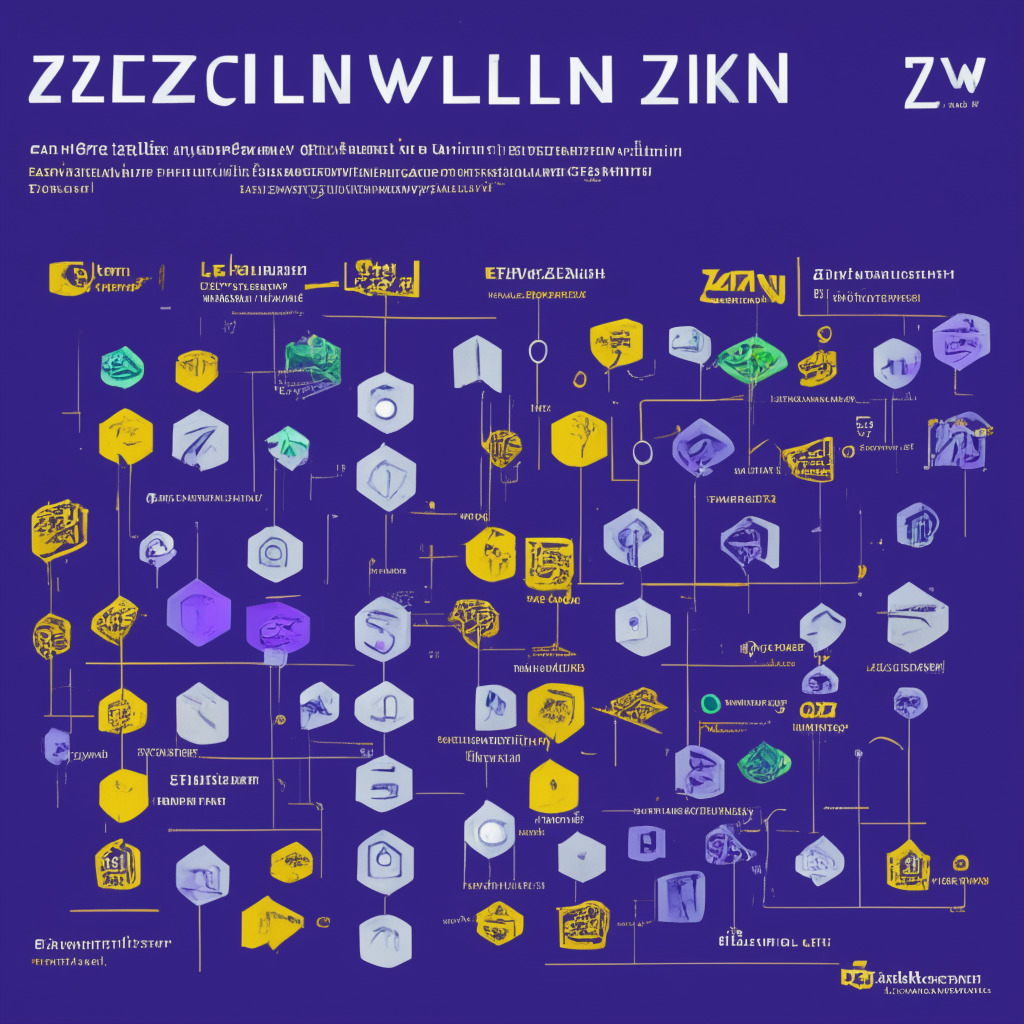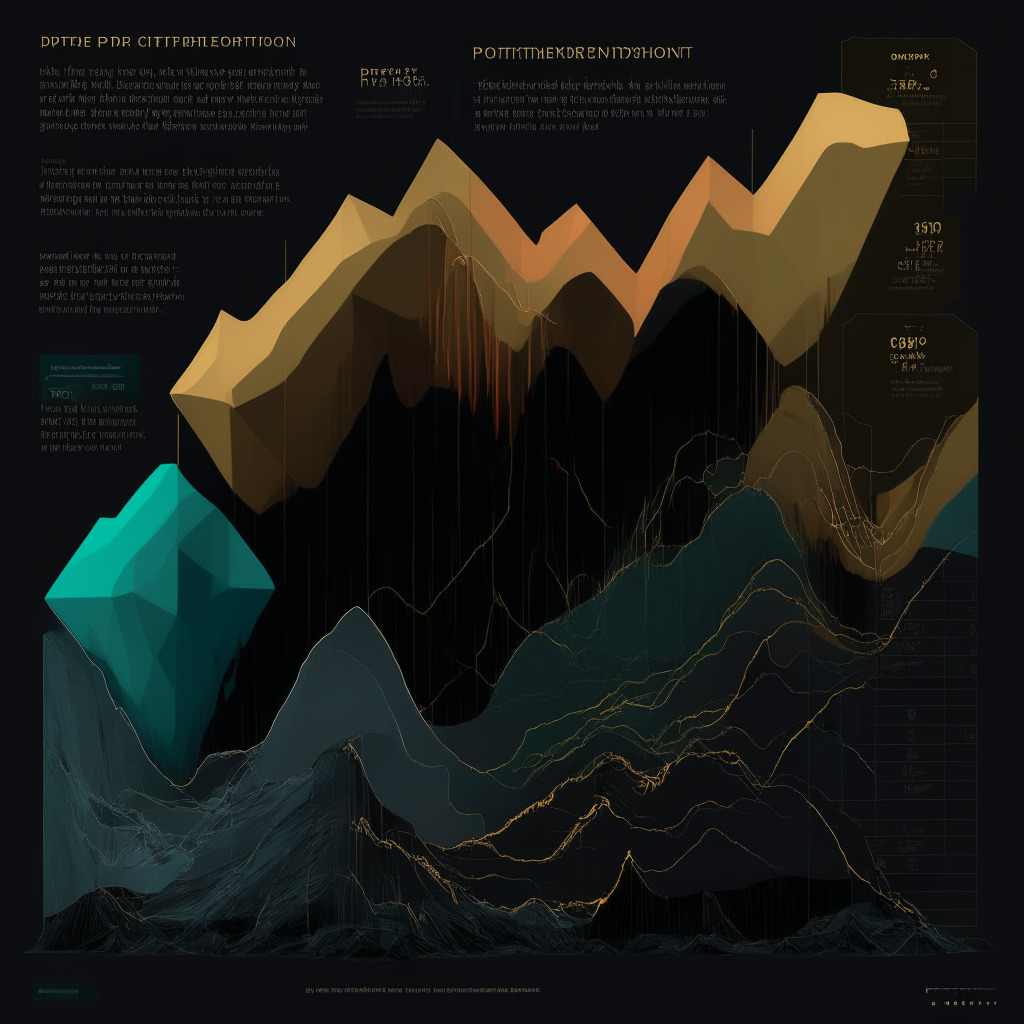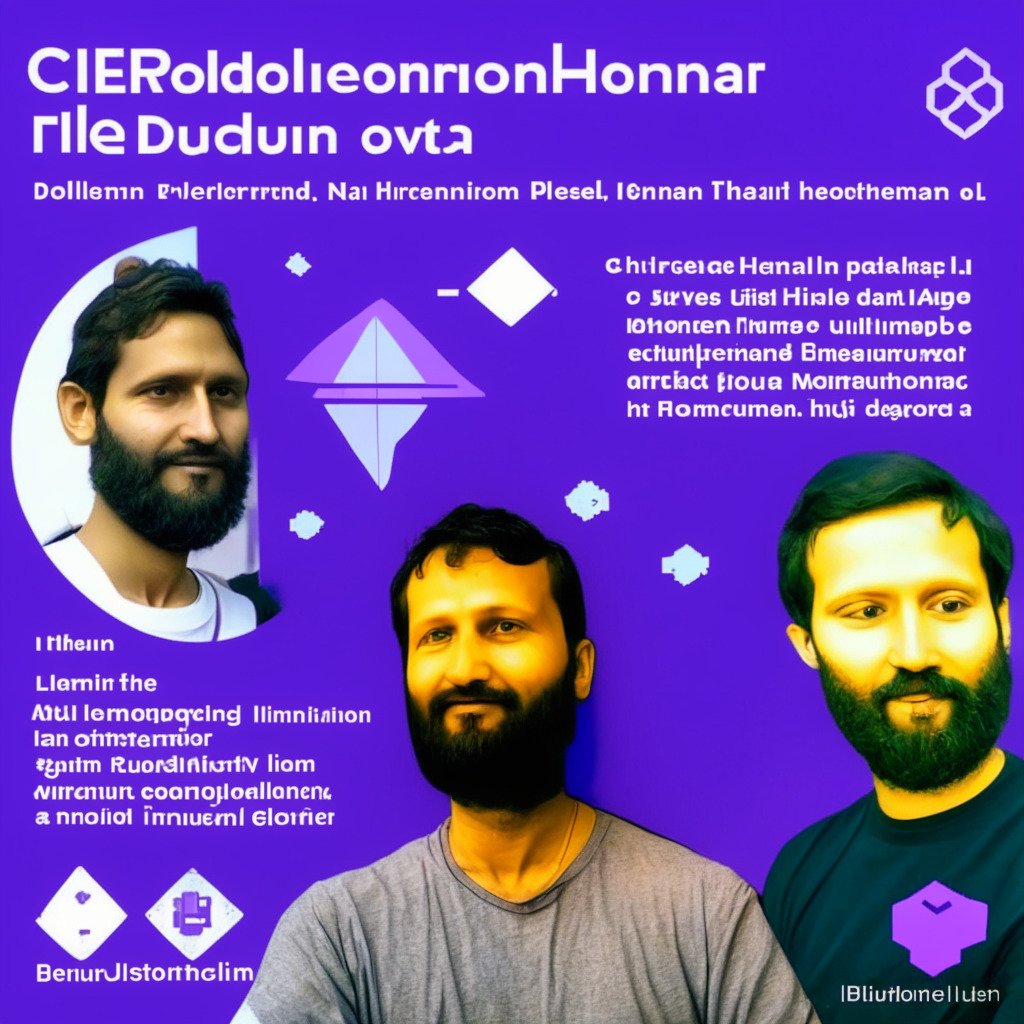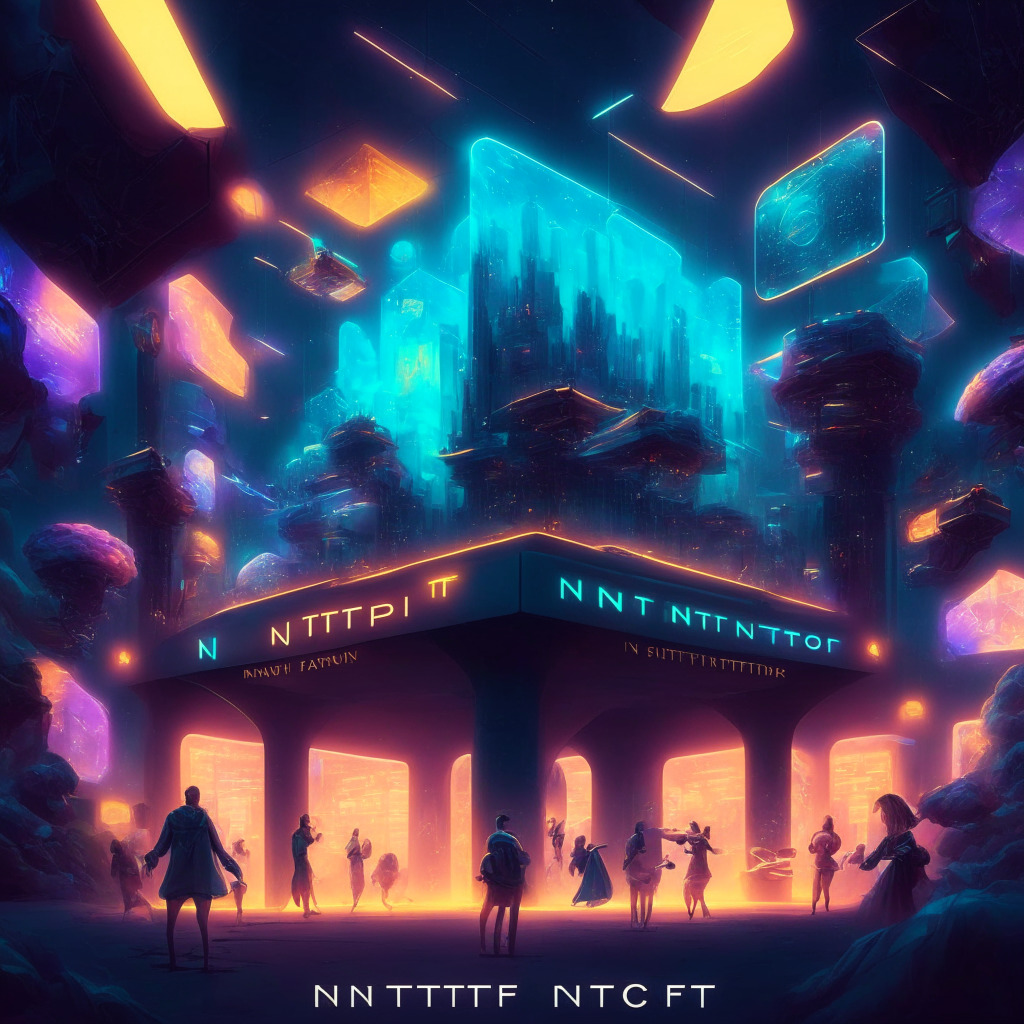Polygon Copilot, an AI assistant developed in partnership with LayerE, integrates OpenAI’s GPT-3.5 and GPT-4 to enhance user experience in the Ethereum-compatible blockchain ecosystem. Offering insights, analytics, and guidance, Polygon Copilot makes navigating decentralized applications more accessible and user-friendly, highlighting AI’s growing importance in the blockchain and cryptocurrency industries.
Search Results for: POL
Navigating Blockchain Complexity: Polygon Copilot’s AI Promise & Privacy Concerns
Polygon Labs introduces no-code AI platform, Polygon Copilot, to simplify understanding of Polygon (MATIC) for blockchain enthusiasts. This AI-powered guide extracts insights from public documentation and Web3.0 content, catering to diverse user needs in NFTs, DApps, gaming, DeFi, and social networks. Despite potential drawbacks, Polygon Copilot aims to bring accessibility to the complex world of blockchain technology.
Polygon 2.0: zkEVM Validium Upgrade for Improved PoS Chain – Pros, Cons, and Conflict
Polygon Labs proposes upgrading its proof-of-stake (PoS) chain to a zkEVM validium to improve security and performance. The upgrade addresses issues like fast block times affecting gas estimation and chain reorgs while integrating zero-knowledge proofs into the infrastructure. Implementation is expected by Q1 2024 if accepted.
Polygon PoS Upgrade to zkEVM Validium: Security vs Scalability vs Decentralization Debate
Polygon co-founder Mihailo Bjelic proposes an upgrade to the Polygon PoS network, suggesting a shift to a “zkEVM validium” version for increased security through zero-knowledge proofs. This upgrade would enable Polygon zkEVM for high-value transactions, offering lower fees and enhanced security from Ethereum’s features, targeting applications like Web3 gaming and social media.
US Political Divide on Crypto Regulations: How it Affects Investors and Companies
Without bipartisan support for digital asset-focused legislation, investors and companies may turn to crypto-friendly jurisdictions, warns Moody’s. Key differences include stablecoin regulation and consumer protection, with many crypto firms already exploring options outside the US.
Exploring Polygon PoS Upgrade to zkEVM Validium: Scalability, Security, and Future Prospects
The Polygon Labs engineering team proposed an upgrade to Polygon Proof-of-Stake (PoS) sidechain, transitioning to ‘zkEVM Validium,’ an Ethereum-secured Layer 2 network secured by zero-knowledge proofs. Targeted for Q1 2024, this upgrade aligns with Polygon 2.0’s vision and aims to enhance scalability, security, and interoperability within the broader cryptocurrency ecosystem.
Polygon’s ZK Technology Upgrade: Boon or Bane for Blockchain’s Future?
Polygon aims to make its primary chain compatible with zero knowledge (ZK) technology, potentially transforming it into a zkEVM validium and ensuring Ethereum Virtual Machine compatibility. This upgrade could enhance security, eliminate reorgs, expedite transactions, and scale the blockchain more effectively. However, the complex integration may introduce unforeseen challenges.
Energy Web’s Shift to Polkadot: Boosting Decarbonization and Attracting Energy Giants
Energy Web is transitioning from its Ethereum-based blockchain to the Polkadot ecosystem to scale its decarbonization product line and attract traditional energy giants. This move aims to enhance cybersecurity, increase decentralization, and accelerate the adoption of cleaner energy sources by major energy producers. The integration with Polkadot will provide a “Web2-like experience” for companies, addressing the evolving needs of the energy sector.
Legal Battles Escalate for Terra Co-Founders: Alleged Fake Passports and Political Ties
The legal battles involving Terra co-founder Do Kwon and former CFO Han Chang-joon intensify as Montenegrin authorities expedite investigations regarding their alleged use of fake passports. Both deny any involvement in illegal financing of Montenegrin political campaigns, with the case highlighting potential risks and complexities in the blockchain and cryptocurrency industry.
Bakkt Delists Solana, Polygon, Cardano: Regulatory Impact on Crypto’s Future and Adoption
Bakkt delists Solana, Polygon, and Cardano due to regulatory uncertainty following the US SEC’s announcement considering them securities. This decision mirrors Robinhood, and both are proactively awaiting further clarity on offering a compliant list of coins.
Crypto Turbulence Amid Fed Policies and Tether Troubles: Navigating Market Uncertainty
Crypto investors face turbulent market conditions as Bitcoin and major altcoins struggle to recover. Falling liquidity and regulatory concerns add to market jitters, while equities gain momentum. Investors should tread carefully and adopt a long-term strategy during these uncertain times.
Crypto Drama Unfolds: Terra Co-Founder Extradition, $40 Billion Losses, and Political Ties
Terra Labs co-founder, Do Kwon, faces extradition in Montenegro over alleged ties to a local political figure and financial fraud charges. His case, dubbed “the largest financial fraud or financial securities fraud in South Korea,” intertwines politics and cryptocurrencies, with potential repercussions for the crypto community.
Crypto Market Volatility: Impact of Fed Policy, CBDCs, and Exchange Crackdowns
Cryptocurrencies experienced significant declines, with Bitcoin dropping below $25,000 and altcoins like MATIC and ADA falling up to 9%. This comes after the Federal Reserve’s policy decision to suspend rate hikes, yet signaled further monetary tightening. Meanwhile, the European Commission plans to propose a draft law affecting digital euro operations, and Binance Smart Chain faces challenges as total value locked drops to its lowest since March 2021. These events reflect the crypto space’s volatility and uncertainty, with ongoing debates on CBDCs, regulatory actions, and global economic influences impacting its future.
Shiba Inu’s Growing Influence: Crypto Market Impact, Political Endorsements, and Welly Expansion
Shiba Inu’s memecoin gains support from significant figures, like US politician Shannon Bray and launches connected stores by Shiba Inu-themed eatery, Welly. This highlights the increasing influence of cryptocurrencies like SHIB beyond trading value and potential regulatory roadblocks.
Polygon 2.0: Unleashing Unlimited Scalability and Bridging Crypto’s Gaps in a Troubled Market
Polygon 2.0, an Ethereum-based Layer-2 scalability solution, aspires to democratize the global economy by creating a user-centric, equitable internet experience. However, uncertainty looms due to the SEC ruling on its native cryptocurrency, MATIC. The new iteration focuses on unification, infinite scalability, and leveraging Zero-Knowledge technology for seamless interaction.
The Arrival of Polygon 2.0: Transforming Internet & Blockchain with ZK Technology
Polygon Labs announces “Polygon 2.0,” a set of upgrades designed to establish the “Value Layer” of the internet, enabling users to create, exchange, and program value online. Powered by Zero-Knowledge (ZK) technology, Polygon 2.0 aims to support limitless chains and seamless cross-chain interactions, potentially transforming internet use and blockchain integration while facing regulatory challenges.
Polygon 2.0: Navigating Global Regulatory Hurdles and Community Control Challenges
Polygon unveils its upcoming project, Polygon 2.0, focusing on development and deployment outside the US amid a tough regulatory environment. With the aim to attract the global community’s attention, Polygon 2.0 will be a network of ZK-powered L2 chains, emphasizing community-driven decisions and facing challenges from US regulatory crackdowns on digital assets.
US CPI Data, Fed Policy Decision: Impact on Crypto Markets and Volatility
The upcoming United States CPI data and Fed’s policy decision could trigger sharp responses in equities and crypto markets. Meanwhile, Bitcoin whales accumulate more holdings despite price drop. Major cryptocurrencies need key support levels to hold for recovery amidst market volatility.
Polygon 2.0 Blueprint: Exciting Potential or Cause for Concern in Blockchain Evolution
The upcoming Polygon 2.0 blueprint announcement, focusing on topics like future PoS chain, token utility, and community governance, could significantly impact blockchain technology. However, healthy skepticism is warranted as competition with Ethereum and potential internal conflicts pose challenges.
Solana, Cardano, Polygon Unite Against SEC: Navigating Regulatory Challenges in Crypto
Solana, Cardano, and Polygon unitedly challenge the SEC’s attempt to classify their cryptocurrencies as securities, seeking regulatory clarity to foster innovation and uphold consumer interests. With a combined market cap exceeding $21 billion, they emphasize their tokens’ importance and strive to collaborate with regulators for clear guidelines and a balanced crypto ecosystem.
Cardano, Solana, Polygon vs SEC: Battle for Token Clarity and Market Recovery
The Input-Output Global (IOG), responsible for Cardano development, and foundations behind Solana and Polygon, are disputing recent SEC allegations that their tokens are securities. They aim to clear the tokens and maintain operations despite market fluctuations and uncertainty, urging cautious investor decision-making.
Will Democrats Lose Young Crypto Voters? Analyzing the Winklevoss Claims and the Political Divide
The Winklevoss twins suggest that the Democratic Party’s perceived “war on crypto” could cost them key young voters in upcoming elections. Young people, who largely supported Democrats previously, make up a significant portion of cryptocurrency adopters. It remains uncertain how important crypto policy is to young voters compared to other issues.
SEC Targets Solana, Polygon, and Cardano: Unraveling the Security Debate and Market Impact
The SEC claims Solana, Polygon, and Cardano are securities, amidst lawsuits against Binance and Coinbase for offering and trading these tokens. The three coins undergo price decline and defend their regulatory statuses, emphasizing collaboration with regulators and exploring potential legal arguments.
Polygon Price Plunge: Analyzing the Potential for Recovery Amid Bearish Crypto Market
In a bearish crypto market, Polygon coin price dropped 45.4% to reach $0.5 support level. With growing buying pressure at this mark, a recovery may be on the horizon. MATIC’s recent integration with Kraken’s NFT platform and key resistance levels are crucial factors in potential rallies.
Robinhood Ends Support for Cardano, Polygon, and Solana Amid SEC Lawsuits: Impact on Crypto
Robinhood announced the end of support for Cardano, Polygon, and Solana due to their identification as unregistered securities in SEC lawsuits against Binance and Coinbase. The decision aims to advocate for regulatory clarity and protect customers amidst the ongoing legal uncertainties.
Polygon’s SEC Troubles vs Ecoterra’s Green Evolution: A Tale of Two Crypto Projects
Polygon’s native MATIC token experienced a nearly 20% dip following the SEC’s scrutiny. In contrast, eco-friendly project Ecoterra’s presale is approaching the $5 million milestone. Leveraging blockchain technology, Ecoterra aims to promote responsible recycling, carbon offset, and environmental impact transparency through its native $ECOTERRA token.
Ethereum and Polygon Co-founders Unite for Covid Research: Exploring Blockchain’s Humanitarian Potential
Ethereum co-founder Vitalik Buterin and Polygon co-founder Sandeep Nailwal collaborate to support additional Covid-19 research projects through Nailwal’s Crypto Relief fund. The focus includes understanding long Covid and improving air filtration and ventilation in buildings, recognizing the potential of cryptographic methods and funds for global well-being.
Robinhood Delists Cardano, Polygon, Solana: Impact of SEC’s Crypto Exchange Crackdown
Robinhood announced its decision to delist Cardano (ADA), Polygon (MATIC), and Solana (SOL) on June 27 due to the SEC’s claims that they are securities. This comes amidst the SEC’s ongoing crackdown against major crypto exchanges Binance and Coinbase, raising concerns about regulations and market growth.
Ethereum and Polygon Co-founders Tackle India’s COVID-19 Crisis: Potential and Challenges
Ethereum co-founder Vitalik Buterin and Polygon co-founder Sandeep Nailwal collaborate with India-based Crypto Relief to send $100 million towards COVID-19 research and development of medical infrastructure in India. Ensuring effective fund distribution and navigating legal complexities will be crucial for achieving desired outcomes.
Kraken Launches NFT Marketplace on Polygon: Boon or Impediment for the NFT Ecosystem?
Kraken is set to launch its NFT Marketplace on the Polygon network, featuring over 250 collections and zero trading fees. The integration aims to ensure ultra-fast and efficient performance in the NFT space, attracting artists and enthusiasts.
Terra Co-founder’s Legal Battle: Crypto Transfers, Shell Companies, and Political Ties Unraveled
South Korean prosecutors investigate Terra co-founder Do Kwon for allegedly transferring $29 million in crypto assets through a shell company. Authorities track transactions, including 10,000 Bitcoins transferred by Terraform Labs to a Swiss bank account, as part of the ongoing investigation.
North Korean Crypto Hacks Target South Korea: Gaining Funds or Political Motives?
North Korean cybercriminals allegedly targeted South Korean ministers in a crypto hacking campaign, seizing a server with two cryptocurrency wallet addresses. Authorities continue to investigate if this is an attempt to steal funds or access valuable information, emphasizing the importance of robust security measures for users and institutions.































